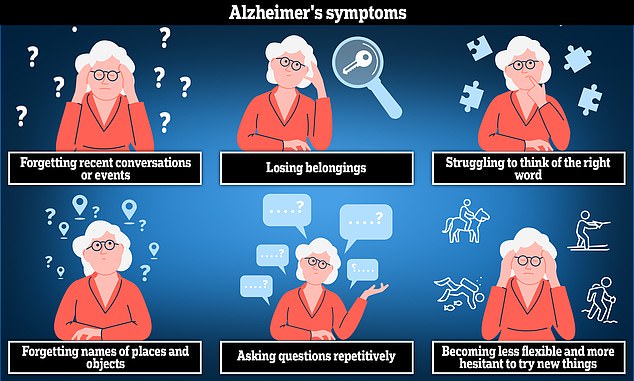It is known as the golden decade, when one should feel most carefree and happy.
But poor health in your 20s could be detrimental to your health years later, US scientists have warned.
Researchers found that young adults who smoked, experienced higher levels of stress and rarely exercised were twice as likely to have poor cognitive performance by age 40.
While poor cognitive performance is expected with advancing age, it can also be a precursor to much more serious diseases such as dementia.
Dr Kristine Yaffe, an expert in dementia and cognitive aging at the University of California, San Francisco, said: ‘Inflammation plays a major role in cognitive aging and can begin in early adulthood.
Making the most of your 20s can be detrimental to your health, US scientists warn. Researchers found that young adults who smoked, experienced higher levels of stress and rarely exercised were twice as likely to have poor cognitive performance by the time they reached age 40.
‘There is likely a direct and indirect effect of inflammation on cognition.
‘Fortunately, there are ways to reduce inflammation (such as increasing physical activity and quitting smoking) that could be promising avenues for prevention.’
Researchers analyzed data from more than 2,300 adults between the ages of 18 and 30.
During an 18-year follow-up, each underwent four tests to detect C-reactive protein (CRP), a marker of inflammation.
They then took cognitive tests five years after their last CRP measurement, at which time most participants were in their forties and fifties.
Scientists found that only 10 percent of those with low inflammation scores in their 20s performed poorly on tests of processing speed and memory.
But the figure stood at 21 and 19 percent respectively, among those with moderate or higher levels, according to the study published in the journal Neurology.
“We know from long-term studies that the brain changes that lead to Alzheimer’s disease and other dementias can take decades to develop,” said Dr. Amber Bahorik, an expert in psychiatry and cognition at the University of California, San Francisco.
“We wanted to see whether health and lifestyle habits in early adulthood may play a role in cognitive abilities in midlife, which in turn may influence the likelihood of dementia later in life,” she added.
It is estimated that around 944,000 people in the UK are living with dementia, while the figure is estimated at around seven million in the US.

Alzheimer’s disease is the most common cause of dementia. The disease can cause anxiety, confusion and short-term memory loss.
Alzheimer’s is the leading cause of dementia, affecting approximately six out of ten people with the disease.
It is thought to be caused by a buildup of amyloid and tau in the brain, which clump together to form plaques and tangles that make it difficult for the brain to function properly.
Over time, the brain struggles to cope with this damage and symptoms of dementia develop.
The second most common form of dementia is vascular, which is when there is reduced blood flow to the brain, such as in a stroke.
Memory problems, thinking and reasoning difficulties, and language problems are common early symptoms of the disease, which then worsen over time.
An analysis by Alzheimer’s Research UK found that 74,261 people died from dementia in 2022, compared with 69,178 a year earlier, making it the country’s biggest killer.

